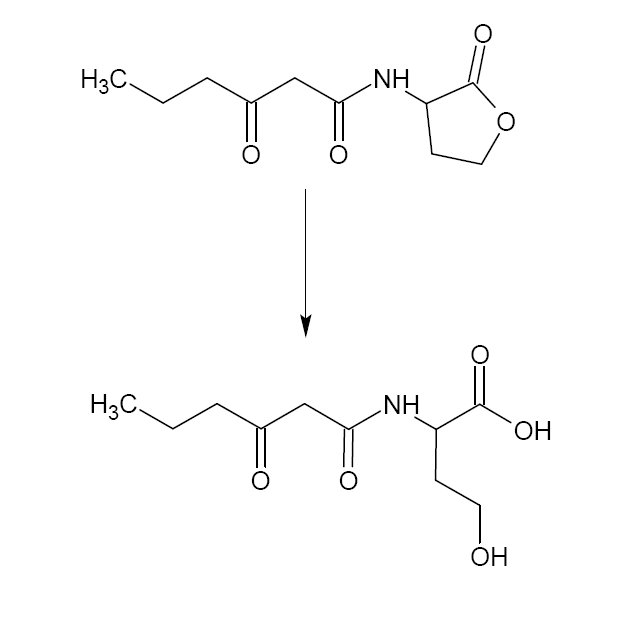Team:KULeuven/Project/Reset
From 2008.igem.org
(→Reset) |
m (→Action) |
||
| Line 15: | Line 15: | ||
The reset mechanism is made to destroy all HSL at the time, when significant input re-emerges. Originally, a pulse of lactonase was thought to do the thing, but modeling proved that the amount of lactonase produced in that system was not enough. In the simplified version described here, the concentration should be high enough and the device should work. | The reset mechanism is made to destroy all HSL at the time, when significant input re-emerges. Originally, a pulse of lactonase was thought to do the thing, but modeling proved that the amount of lactonase produced in that system was not enough. In the simplified version described here, the concentration should be high enough and the device should work. | ||
| - | The ''aiiA'' gene | + | The ''aiiA'' gene coding for lactonase is regulated by the output signal from the filter, so that background input signal does not result in timer reset. |
Revision as of 20:58, 31 July 2008
Contents |
Reset
BioBricks
Components
The system is dependent on the output of the filter, and has therefor a T7 RNA polymerase promoter ([http://partsregistry.org/Part:BBa_I712074 BBa_I712074]) and RiboLock3d ([http://partsregistry.org/Part:BBa_J23032 BBa_J23032]). The aiiA gene, encoded by [http://partsregistry.org/Part:BBa_C0060 BBa_C0060], produces lactonase, an enzyme that hydrolyses the 3OC6HSL ester bonds ([http://www.nature.com/nature/journal/v411/n6839/full/411813a0.html reference]).
Action
The reset mechanism is made to destroy all HSL at the time, when significant input re-emerges. Originally, a pulse of lactonase was thought to do the thing, but modeling proved that the amount of lactonase produced in that system was not enough. In the simplified version described here, the concentration should be high enough and the device should work.
The aiiA gene coding for lactonase is regulated by the output signal from the filter, so that background input signal does not result in timer reset.
 "
"



